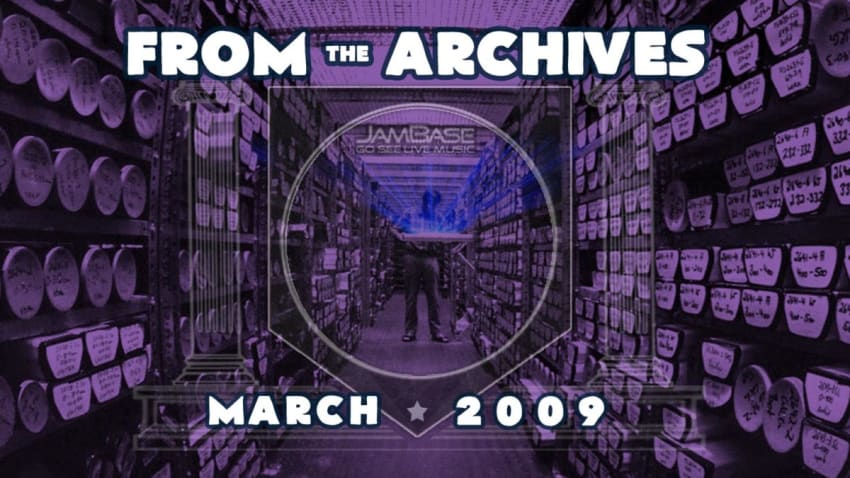Genticorum: La Bibournoise
By Team JamBase Mar 20, 2009 • 6:27 am PDT

 Traditional music, across the quilt of its countless and varied forms around the globe, has an innate power to reveal a thing or two about the culture from which it originates, sometimes in a comprehendible language, other times in a foreign and unknown tongue, leaving the music to be the sole “voice.” On La Bibournoise (released February 17 in the U.S. on Mad River Records), Genticorum pulls you into a gorgeous French Canadian countryside, a vast, verdant landscape of rolling hills and mountaintops, scattered wildlife and fewer houses, all defined and constructed by age-old instrumentation and styles, just sparingly accentuated by newer ones. Like a soundtrack for a high-def featurette that showcases the most striking sights of a native land, La Bibournoise can, in every sense, act as a proper aid for an intensive couch voyage, bringing the merriment and carefree vibe of rural Quebec directly to you without the hassle of hopping on a plane.
Traditional music, across the quilt of its countless and varied forms around the globe, has an innate power to reveal a thing or two about the culture from which it originates, sometimes in a comprehendible language, other times in a foreign and unknown tongue, leaving the music to be the sole “voice.” On La Bibournoise (released February 17 in the U.S. on Mad River Records), Genticorum pulls you into a gorgeous French Canadian countryside, a vast, verdant landscape of rolling hills and mountaintops, scattered wildlife and fewer houses, all defined and constructed by age-old instrumentation and styles, just sparingly accentuated by newer ones. Like a soundtrack for a high-def featurette that showcases the most striking sights of a native land, La Bibournoise can, in every sense, act as a proper aid for an intensive couch voyage, bringing the merriment and carefree vibe of rural Quebec directly to you without the hassle of hopping on a plane.
To cast these strokes of color, Genticorum goes to work on the most essential of classic Québécois instruments, with their only truly modern instrument – a fretless electric bass, manned by Alexandre “Moulin” de Grosbois-Garand in addition to his wooden flute, fiddle and vocals – being a mere infant compared to the extensive life spans of their other antiquated tools. The only percussion is provided by Pascal Gemme‘s feet stomping out the supportive structures for songs on a piece of wood, while often rapidly whaling away on his fiddle and singing at the same time – a challenging display of coordination executed with stellar precision. Rounding out the trio, Yann Falquet strums acoustic guitar, though it’s typically the fiddle or flute that carries the melody. Falquet also adds the quirky twang of the Jew’s harp to supplement a number of tracks. Coming together, you’ve got instrumental sagas like “Le Brandy Culotté” that evoke images of a midnight festival around a campfire, sublimely harmonious a cappella pieces like the titular “La Bibournoise” (prompting one to sing along even if they can’t understand a lick of what’s being uttered), plus a few flat out nonsense tales – according to liner note translations – still founded on exquisite arrangements.
While a few songs are similar in structure, that’s not to say the repetition takes away any of the grandeur from the rolling compositions as they’re laid out. After all, this is traditional music. In actuality, when they do pick up enough momentum to reach full speed, as they do halfway through “Hommage à André Alain – La Gigue à Pierre Chartrand,” rarely does it seem they could continue for extended periods of time and even come close to boring the listener. There’s far too much to admire. The lightning-fast fiddle and flute interchange on “La Ligue du Vieux Poêle – La Grondeuse Opossum,” the calming lullaby nature of “Valse Beaulieu” and jubilant racer “Pinson Et Cendrouille” all offer vivid representations of the bucolic imagery endemic to the region where this music came into existence. Rich, driven and authentic in every way, La Bibournoise is the type of stuff that prompts you to start up a fire, grab a few flagons of ale and howl out some of your own old tunes, even if it’s only in your own backyard.
JamBase | Great White North
Go See Live Music!
